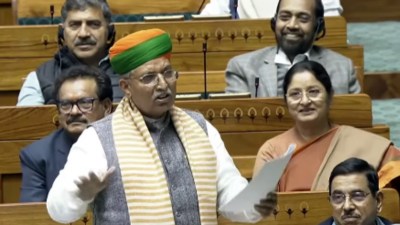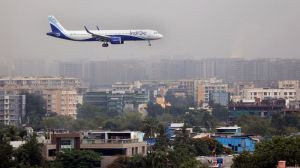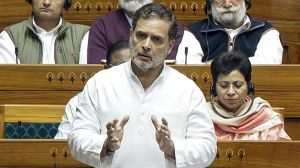President Patil dissents,wants Cabinets call on Gujarat terror Bill
In a rare intervention,President Pratibha Patil has returned the recommendation of the Union Ministry of Home Affairs...
In a rare intervention,President Pratibha Patil has returned the recommendation of the Union Ministry of Home Affairs (MHA) to send the Gujarat Control of Organised Crime (GUJCOC) Bill,2003,back to the state Assembly. Sources told The Sunday Express that the President has directed the MHA to seek the concurrence of the Union Cabinet on the course of action suggested by it.
We have already sent back the file to the MHA for placing the same before the Cabinet, disclosed a senior functionary in the Presidents Secretariat.
Incidentally,there have been differences within the Union Cabinet,too,on the fate of the Bill,with the Cabinet failing to take a decision on the issue twice. Some ministers are said to hold the view that since the Gujarat law is similar to the Maharashtra Control of Organised Crime Act (MCOCA),which is applicable in Congress-ruled Maharashtra and Delhi,the Centre should recommend to the President to give her assent to the GUJCOC Bill,which is lying in the MHA since 2004.
As first reported by The Indian Express on November 7 last year,the MHA forwarded the GUJCOC Bill to the President with the recommendation to send it back to the Assembly without signing it. The communication advised the President to ask the Gujarat Assembly to re-work the Bill in order to remove provisions that it said are susceptible to misuse by investigating agencies.
However,after P Chidambaram took over as Home Minister and amendments were made to the Unlawful Activities (Prevention) Act,1967,the MHA recalled the file from the Presidents Secretariat. Sources said the purpose behind this move was to identify provisions in the GUJCOC Bill that were harsher than the amended Unlawful Activities (Prevention) Act.
The MHA finally informed the President that some provisions of Gujarats proposed anti-terror law were suspect and hence the Bill should be sent back to the Gujarat Assembly for amending the same.
Among such provisions was Clause 16 of the GUJCOC Bill which allows admissibility of confessional statements before a police officer during trial,Clause 20 (2)(b) that deals with the power of the special court to extend the accuseds detention without bail from 90 days to 180 days and,finally,clause 20(4)(b) that provides that no person accused of an offence punishable under the proposed law shall be released on bail if the prosecutor opposes the same. The MHA is of the view that clause 20(4)(b) limits the discretion of the court.
- 01
- 02
- 03
- 04
- 05































